The unwanted boatpeople are being carried by local boats from a pier in the Thai-Burma port of Ranong to a trafficker's vessel for transfer south to Malaysia and sale, the sources say.
Reporters were able to confirm at the weekend the suspicious movement of Rohingya men and women to Ranong.
Conversations by mobile telephone have also confirmed that traffickers are already offering people for sale at 65,000 baht each.
At least two busloads of Rohingya are claimed to have have been shipped out from Ranong, with more likely to be processed as traffickers on-sell the captives.
Two more busloads of Rohingya were reported by well-informed contacts to be on the way to Ranong from other parts of Thailand - Nong Khai province and the Mae Sai district of Chiang Rai - on Monday.
Such a covert sale and movement of the Rohingya would be in direct conflict with Thailand's stated aims of suppressing human trafficking in advance of the release of a new US 'Trafficking in Persons Report.'
If allegations of the involvement of Thai officials in people-smuggling were proven, Thailand would be exposed to an adverse reaction from the US and other trading partners who are committed to wiping out human trafficking.
Reporters from Phuketwan were unable to confirm with absolute certainty at the weekend that some of the Rohingya being held in Thailand are being trafficked by officials.
But we have seen clearcut evidence of the suspicious movement of Rohingya and heard from several reliable sources that traffickers and Thai officials have been trading in people.
About 1700 Rohingya are believed to remain in police cells and detention centres throughout Thailand, either ''rescued'' from traffickers' camps or plucked from boats, mostly in January.
With the exodus by sea of unwanted Rohingya from Burma (Myanmar) likely to grow as the safe ''sailing season'' begins, a check on the whereabouts of the Rohingya would prove or disprove the allegations of official involvement.
At the weekend, Phuketwan reporters were told that a number of Rohingya were being taken by bus from Sadao Immigration detention centre, in Thailand's south, about 500 kilometres north to Ranong.
The reporters were given the registration numbers of the bus and were able to confirm the arrival of the bus at Ranong Immigration detention centre at 2am on Saturday.
About 50 Rohingya men and women were on board the bus, sources said. It's understood that the passengers were fingerprinted and had their photographs taken in readiness for ''deportation.''
At 2.40pm on Saturday, as sources had predicted, a Ranong Immigration truck left the centre and arrived at the Andaman Club pier, about 12 kilometres away, one of many piers along the nearby coast.
The people in the truck were later transferred by small local long-tail vessels to a ship waiting offshore, sources said.
Another bus from Immigration in Mae Sot, Trak province, carrying 39 Rohingya, was due to arrive at Ranong Immigration on Saturday evening.
One Phuket-based source said he was contacted on Sunday afternoon by a people-broker from Malaysia who offered him his two nephews for sale at 65,000 baht each.
The process followed for years in transferring boatpeople from Burma via Thailand to Malaysia has always involved human traffickers who act as go-betweens and pay off officials along the way.
However, while brokers in Thailand still ask just 7000 baht per smuggled person, the price being asked by Malaysian traffickers has grown to between 40,000 and 65,000 baht.
''If Immigration sells the people to us at 10,000 baht each, we can afford to pay that,'' the source told Phuketwan.
''But with the officials selling the Rohingya to the Malaysian brokers at 10,000 baht each, the relatives of these people cannot afford to buy back their families at big prices.''
Rohingya who are not bought by their relatives are beaten and forced to make tormented telephone calls, pleading for the money to be paid.
If abuse fails to work, the Rohingya are sometimes onsold to trawler captains to work as virtual slaves in the fishing fleets off the coast of Malaysia or Thailand.
A Thai broker recently told Phuketwan that the nature of trafficking and enslavement is growing worse, with the captains of Indonesian vessels now offering to buy Rohingya.
''At least one Indonesian captain was offering to buy 20 workers,'' the broker said.
With boatloads of Rohingya arriving again off Thailand's coast, two new large trafficking camps have been set up in Narathiwat and Satun, according to the broker.
Thailand's Prime Minister, Yingluck Shinawatra, has appointed deputy PM Phongthep Thepkanchana as chairman of the government team responsible for preparing reports on the country's human trafficking response.
People brokers and sources who have been offered Rohingya confirm the involvement of Thai officials in the dealing that took place at the weekend.

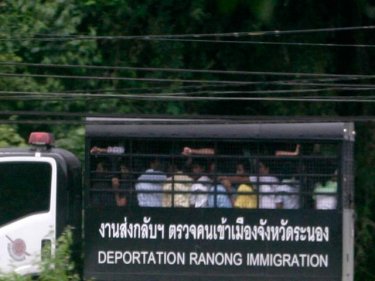







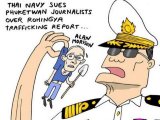


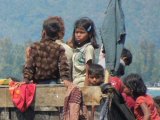


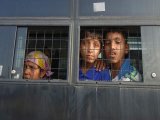

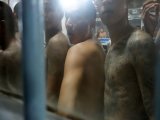



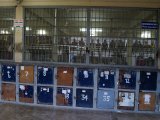

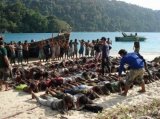
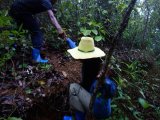

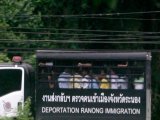


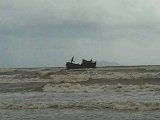
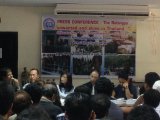

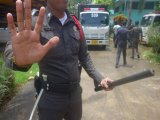
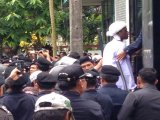



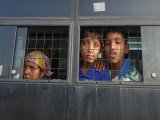
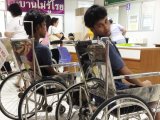
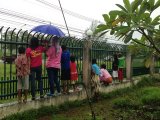

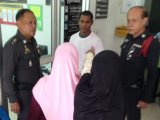

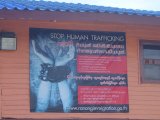
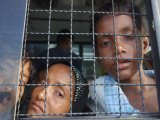
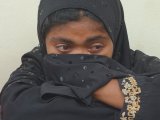





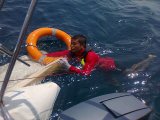
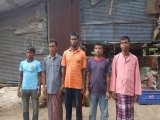
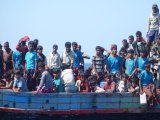
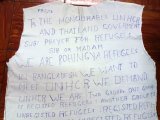
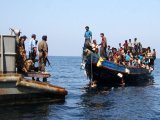
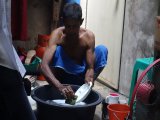

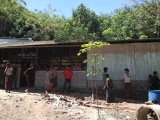
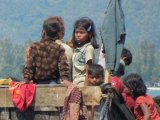

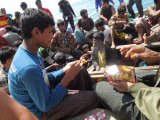
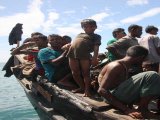



So sickening to read about the ongoing suffering of those poor people. Authorities are almost always deeply involved in this slavery and as a matter of fact in most illegal activities in Thailand.
This is also one reason why we cannot solve our problems in Thailand as the people who suppose to solve the problems are actually the true problem!
Posted by Mr. K on October 21, 2013 09:56